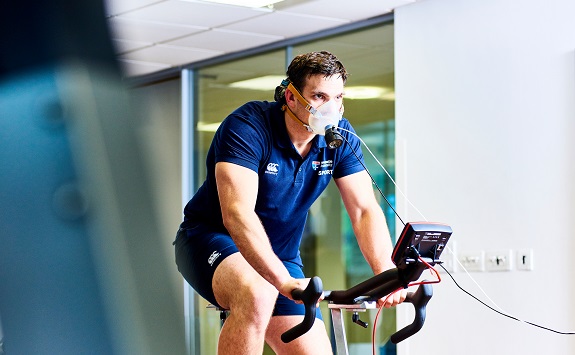Human Nutrition and Exercise Research Centre
- Roles in pathogenisis of disease
- Altered metabolism and disease
- Behaviour change in at-risk and clinical groups
- Underpinning science for clinical nutrex interventions
- Dietetics
- Patient and HCP choices and information
- Theraputic interventions and management of conditions
- Secondary prevention
- Sustainability
- Policy and regulation
- School and workplace nutrition
- Physical activity interventions
- Nutrition guidelines
- Assessment guidelines
- Metabolism
- Appetite control
- Behavior and choice architecture
- Nutrition-Exercise interaction
- Sport/Performance nutrition
- Formulation/Food science
- Bioavailability
- Sustainability
- Food Industry Partnerships
- Food production
Research with Impact
We have a vibrant research community within the HNERC, with research spanning many different fields of nutritional and exercise sciences. If you’d like to know more about our other major achievements over the years, see our article in the Nutrition Bulletin. You can also find summaries of some of our more recent publications and successes on our blog.
Some of our key research successes within the HNERC:
DiRECT
The DiRECT study (Diabetes Remission Clinical Trial) has been hugely influential in demonstrating that weight loss through diet can cause long-term remission of type 2 diabetes. Led by Newcastle University’s Professor Roy Taylor, and including other HNERC researchers such as Prof. Ashley Adamson and Prof. John Mathers, this trial demonstrated diabetes remission in around half of the study participants 1 year post intervention and around a third of participants after 2 years. The intervention involves total diet replacement (825–853 kcal/day formula diet for 3–5 months), stepped food reintroduction (2–8 weeks), and structured support for long-term weight loss maintenance. Longer term data collection is ongoing, and the intervention is now becoming widely available across the UK.
CAPP2
The CAPP2 (Colorectal Adenoma/carcinoma Prevention Programme) study included Newcastle researchers Prof. John Mathers and Prof. Sir John Burn, alongside Prof. Tim Bishop (University of Leeds). It randomised 861 individuals who were carriers of hereditary cancer, Lynch syndrome, to receive 600 mg aspirin (equivalent to two standard aspirins per day), 30 g resistant starch (equivalent to around 1 green banana per day), or both for a 2.5 year period. Although there was no short-term effect at the end of intervention, there was a significant protective effect of the aspirin 5 and 10 years after commencing the intervention. In addition, long-term follow-up of participants in the CAPP2 Study showed that those randomised to receive resistant starch had significantly lower risk of other cancers, especially cancers of the upper gastrointestinal tract. The CAPP2 study findings have been used by NICE in producing guidance for patients with Lynch syndrome.
Food4Me
The Food4Me study is one of the most influential personalised nutrition investigations conducted to date, and was led by Prof. John Mathers of the HNERC. This 6 month, four-arm, internet-based randomised controlled trial was conducted in 2012 -2014 and compared the effects of general versus personalised advice on dietary and other lifestyle behaviours. Compared with generalised nutritional advice, personalised nutrition advice based on an evaluation of current individual dietary intake was more effective at improving dietary behaviours. However, the addition of phenotypic or phenotypic plus genotypic information (on top of guidance provided based on current dietary intake) did not further enhance the effectiveness of the intervention. The Food4Me study has produced around 50 peer-reviewed publications to date.
Sunshine Eggs
The Sunshine Eggs project was launched in 2015 and funded by a grant from Innovate UK. This project, which was led by Prof. Tom Hill, and working closely with Noble Foods Ltd and DSM Nutrition Products Ltd, demonstrated that providing flocks of commercial hens with vitamin D enriched feed for 6 weeks improved the total vitamin D content of their eggs by 40%. This work informed the reformulation of the UK’s leading free-range egg brand ‘Happy Egg’ to offer vitamin-D enriched eggs for purchase by the general public. Find out more information including the overview anf key outcomes of this project.
WholeHeart and wholegrain research
The HNERC is recognized as a world-leader for its work on understanding the health benefits of dietary whole grain, led by Emeritus Professor Chris Seal. The work encompassed a number of key dietary intervention studies carried out in collaboration with colleagues in Cambridge and Aberdeen with funding from the Food Standards Agency and the Department of Health, along with support from cereal-manufacturing food companies.
The first of these, the WholeHeart Study, is still the largest whole-grain intervention study worldwide and showcased the HNERC’s excellence in carrying out food-based dietary interventions. Although the effects of increasing consumption of whole grain on cardiometabolic health markers were small, the study highlighted the need for better controlled and longer studies in the future. The intervention studies were underpinned by developing methods to quantify accurately whole-grain intake. We developed and published tables of whole-grain content of foods which are being replicated in Australia and the US.
Recent work has focused on promoting and developing global definitions for whole grain and whole-grain foods, with the hope that implementing these will raise the profile of whole grain and help the consumer choose whole-grain foods to improve food quality and decrease disease risk.
NuBrain
Given the mounting social and economic pressure of dementia, there is growing interest in strategies to help facilitate healthy brain ageing in the general population.
The NuBrain consortium, led by Prof. Emma Stevenson (Biomedical, Nutritional and Sport Sciences) and funded by the Medical Research Council (MRC), was established in 2020 to build a sustainable, internationally field-leading consortium in the area of nutrition and brain health.
NuBrain focuses on addressing some of the fundamental research challenges in the area of nutrition and brain ageing, and has brought together researchers from Newcastle (Professor Emma Stevenson, Professor Tom Hill, Professor Ashley Adamson, Professor Falko Sniehotta, and Dr. Oliver Shannon), Edinburgh (including Professor Craig Ritchie, Dr. Graciela Muniz-Tererra, and Dr. Sarah Gregory), University of East Anglia (Professor Anne Marie Minihane), and the University of Manchester (Professor Alistair Burns). Find out more information on the NuBrain consortium.
PhD opportunities
In the HNERC we have a thriving PhD programme. Our students work across all areas of nutritional and exercise sciences. If you are interested in undertaking a PhD within the HNERC, we welcome applications from self-funded students. Please also keep an eye on our social media for any funded PhD opportunities. Check out the websites of our staff to learn more about each academic's area of expertise, and any other projects they may have on offer.
Examples of self-funded PhD projects which could be undertaken within our Centre, and the lead supervisor for them are:
- Feasibility of offering weight loss referrals in secondary care - Sam Orange
- Feasibility of a culturally adapted dietary intervention for brain health among British South Asians - Andrea Fairley
- Feasibility of an intervention to make the healthy food choice the easy one in NHS workplace - Lorraine McSweeney
- Understanding the fourth domain of endurance performance: fatigue resistance - Wouter Peeters
- Development of a dietary assessment method for groups experiencing food insecurity - Nicola Heslehurst
- Database on polyacetylene contents of foods - Kirsten Brandt
- Ghrelin sensitivity and appetite control in ageing - Adrian Holliday
- Food insecurity as a target to improve brain health and reduce dementia risk - Oliver Shannon
- Investigations of mechanisms and quantification of cancer-reducing effects of polyacetylenes from carrots and related vegetables - Lei Huang
- Flavour-Nutrient Learning for feedback regulation of micronutrient intake, quantification of effect on food choice - Caroline Allen
- Impact of cytoskeletal alterations on nutrient metabolism in early colorectal cancer - Bernard Corfe
- Nutrokinetics of vitamin D uptake - Bernard Corfe
- Effects of exercise serum on cancer cell DNA damage and repair - Sam Orange
- Developing smart textiles with multimodal sensors and software to quantify muscle health - Annette Pantall
- Using insects as an alternative dietary protein source - Helen Mason
- Nutrition and diet in British Overseas Territories - Julie Young
- Understanding the associations between exercise, depression and the gut microbiome in young people - Laura Basterfield
- Developing a model of peer-led HIIT in secondary school: Young Fitness Leaders - Laura Basterfield
- Using wearable technology to understand the role of physical activity intensities during active travel - João Greca
- The interplay between physical activity and mental health: integrating theoretical understandings and applied frameworks of support - Emily Oliver
- The impact of micronutrient status on gastrointestinal health - Fiona Malcomson
- Associations between micronutrients and colorectal cancer risk - Cathy Meplan
Get Involved
Nutrition is important to everyone and we welcome people to help with our work.
You could get involved with our work as a volunteer in a study, student (undergraduate and postgraduate), or professional researcher. Find out more about vacancies and how to volunteer.
Members of the HNERC contribute to teaching of many of our degree programmes. This includes supervision of final year research projects. These are often linked with ongoing research projects in the HNERC.
We have useful information on research and training opportunities that could help inhance you career and aspirations.

